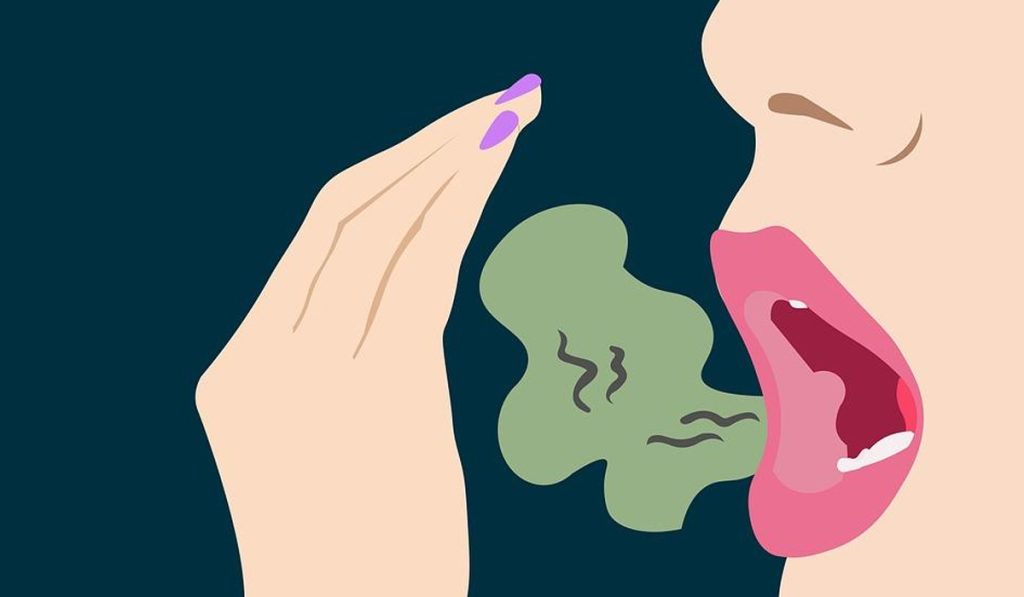Innovative ways to treat and prevent the Bad Breath.
According to estimates, 25% of people have bad breath. Halitosis may be brought on by a variety of factors, but dental hygiene accounts for the great majority of them.
Halitosis and fetor oris are other names for it. Although halitosis can be a substantial source of worry, humiliation, and anxiety, it is rather simple to treat.
What is halitosis (Bad breath)?
A common issue that can lead to serious psychological anguish is bad breath. There are numerous probable reasons and available therapies. Bad breath can affect anyone. According to estimates, 1 in 4 persons regularly have terrible breath.

After gum disease and tooth decay, halitosis is the third most prevalent reason people seek dental care. Often, the problem can be resolved with a few straightforward home remedies and lifestyle modifications like better tooth care and giving up smoking. To check for underlying causes, however, it is advised to see a doctor if bad breath persists.
Causes of bad breath
Among the potential reasons for foul breath are:
Tobacco:
Tobacco products have unique mouth odours of their own. They also raise the risk of gum disease, which can lead to poor breath.
Food:
Odors may be caused by the breakdown of food particles lodged in the teeth. Some foods, like garlic and onions, can also contribute to bad breath. Once they have been digested, the blood carries the breakdown products to the lungs where they can impact breathing.
Dry mouth:
The mouth is naturally cleaned by saliva. Odors can accumulate if the mouth is normally dry or dry as a result of a specific illness, like xerostomia.
Dental hygiene:
Brushing and flossing ensure that minute food particles that can accumulate and slowly decompose, causing odour, are removed. If you don’t brush regularly, plaque—a coating of bacteria—builds up. Periodontitis, an inflammation between the teeth and gums, can be brought on by this plaque irritating the gums. Additionally, dentures that are not properly or routinely cleaned may contain halitosis-causing germs.
Crash diets:
Halitosis can be brought on by fasting and low-carbohydrate diets. This is a result of the breakdown of fats, which releases molecules known as ketones. The fragrance of these ketones is potent.
Drugs:
Some medicines can decrease saliva production, which elevates smells. As other medications break down and release substances into the breath, they can emit scents. Nitrates used to treat angina, some chemotherapeutic compounds, and some tranquillizers like phenothiazines are a few examples. Large vitamin supplement users may also be more susceptible to developing foul breath.
Mouth, nose, and throat ailments:
On occasion, tiny stones covered in bacteria can develop on the tonsils at the back of the throat and emit a foul odour. Halitosis can also result from nasal, throat, or sinus infections or inflammation.
Foreign body:
In children especially, having a foreign body stuck in the nasal cavity might result in bad breath.
Illnesses:
Because of the unique chemical combinations that some malignancies, liver failure, and other metabolic diseases produce, halitosis can be brought on by these conditions. Due to the continuous reflux of stomach acid, gastroesophageal reflux disease (GERD) can result in poor breath.
Symptoms of bad breath
Depending on the underlying reason of the issue, the particular smell of breath can change. As it might be challenging to judge your mouth odour, it is preferable to ask a close friend or relative to do so.
If no one is around, you can check the smell by licking your wrist, letting it dry, and then sniffing it. You may have halitosis if you have an unpleasant odour on this part of your wrist.
Even though they may not have much or any mouth odour, some people worry about their breath. Halitophobia is a syndrome that can make cleaning your mouth an obsession.
How is breath odor diagnosed?
Your dentist will check your breath and inquire about the issue. They could advise you to make an appointment early in the day, before you brush your teeth.
You can anticipate being asked about your eating habits, how frequently you brush and floss, and any allergies or illnesses you may have. Inform your doctor about your drug intake, how frequently you snore, and when the problem first occurred.
Your doctor will smell your mouth, nose, and tongue to try to identify the source of the odour in order to diagnose what is causing your bad breath. In order to rule out an underlying ailment, your dentist will advise that you visit your family doctor if the odour doesn’t appear to be coming from your mouth or teeth.
Treatment options for breath odor
A dental cleaning may be the solution if plaque accumulation is the cause of bad breath. If you have periodontal disease, you could need a thorough dental cleaning.
Breath odour can also be improved by treating underlying medical conditions such a sinus infection or renal illness. If dry mouth is the root of your odour issue, your dentist may advise using an artificial saliva product and drinking plenty of water.
How can I prevent breath odor?
Twice daily tooth brushing is recommended (while taking care not to overbrush). Every day, floss, making careful to reach all of your teeth. Use antibacterial mouthwash every day to eliminate bacteria. Additionally, using a tongue scraper or toothbrush to brush your tongue can assist get rid of microorganisms.
Breath odour can frequently be reduced or avoided by staying hydrated. To flush away food residue and maintain moisture in your mouth, drink water. Quitting smoking can also keep your tongue fresh and odor-free if you currently smoke.
There are a number of practises that can help prevent bad breath:
- Clean your retainers, mouth guards, and dentures every day.
- Every three months, switch out your old toothbrush for a new one.
- Every six months, make an appointment for a dental cleaning and checkup.
REFERENCES:
- https://www.healthline.com/health/bad-breath
- https://www.medicalnewstoday.com/articles/166636
- https://www.mayoclinic.org/diseases-conditions/bad-breath/symptoms-causes/syc-20350922
- https://www.webmd.com/oral-health/guide/bad-breath
For more details, kindly visit below.